Apple's iPhone earnings were over 3.6 times that of Samsung and over three times the profits of the top four brands in China, as the company sold 43 percent of all "premium" phones globally.
According to a pair of new reports by Counterpoint Research, Apple's share of global handset profits remained distantly ahead of the combined earnings of all other phone makers worldwide.
Apple's 62 percent share of profits generated in Q2 was far ahead of Samsung's 17 percent, and was over three times the profit share of China's Huawei, OPPO, Vivo and Xiaomi put together. The remaining profits of more than 600 other handset brands amounted to less than 1 percent.
Counterpoint stated that "aggressive" efforts by Chinese brands to sell higher-end flagships resulted in their combined profits reaching $2 billion for the first time, suggesting that Apple's 62 percent share amounted to $6 billion. Apple reported iPhone revenues of about $30 billion in its fiscal quarter.
In the report, analyst Karn Chauhan wrote that Samsung's profits from smartphones "declined 21 percent annually due to weaker than expected sales of the Galaxy S9 series. The Galaxy S9 series shipments declined 24 percent in Q2 2018 as compared to Galaxy S8 series in Q2 2017."
Apple holds 88 percent of sales of +$800 smartphones
Profits in the industry were overwhelmingly generated by high-end premium models. And while overall demand for smartphones dropped by 1 percent in Q2, sales of premium smartphones (defined as being priced above $400, and accounting for about a fifth of all smartphone sales) actual grew by 7 percent globally.
Apple held 43 percent of all "premium sales," ahead of Samsung's 24 percent share, OPPO's 10 percent, Huawei's 9 percent, Xioami's 3 percent and 2 percent claimed by OnePlus.
Among phones priced between $400 and $600, Apple and OPPO were tied at 22 percent of sales, Samsung reached 16 percent, Huawei accounted for 14 percent, Xiaomi 6 percent and OnePlus 5 percent. Between $600 and $800, Apple accounted for 44 percent of all sales, followed by Samsung with 41 percent.
"Samsung's share in the $600-$800 segment declined due to fewer than expected sales of the Galaxy S9 series," noted Tarun Pathak. Above $800, Counterpoint stated that Apple dominated with 88 percent of all sales being iPhones.
 Daniel Eran Dilger
Daniel Eran Dilger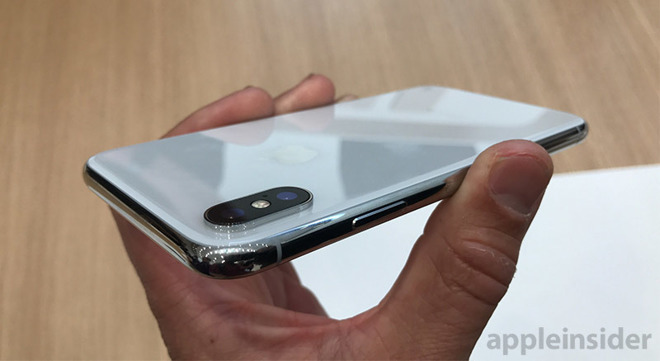
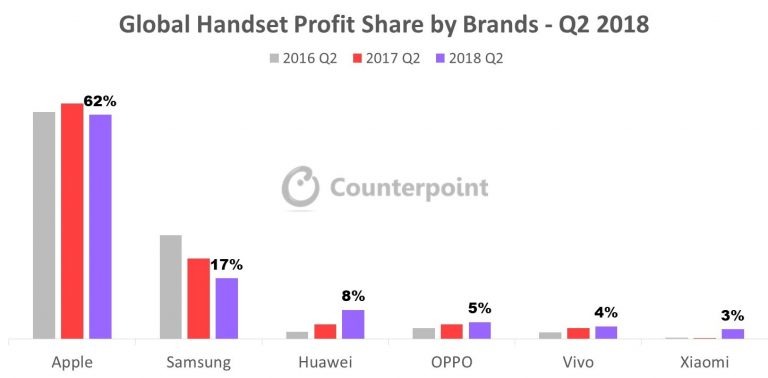
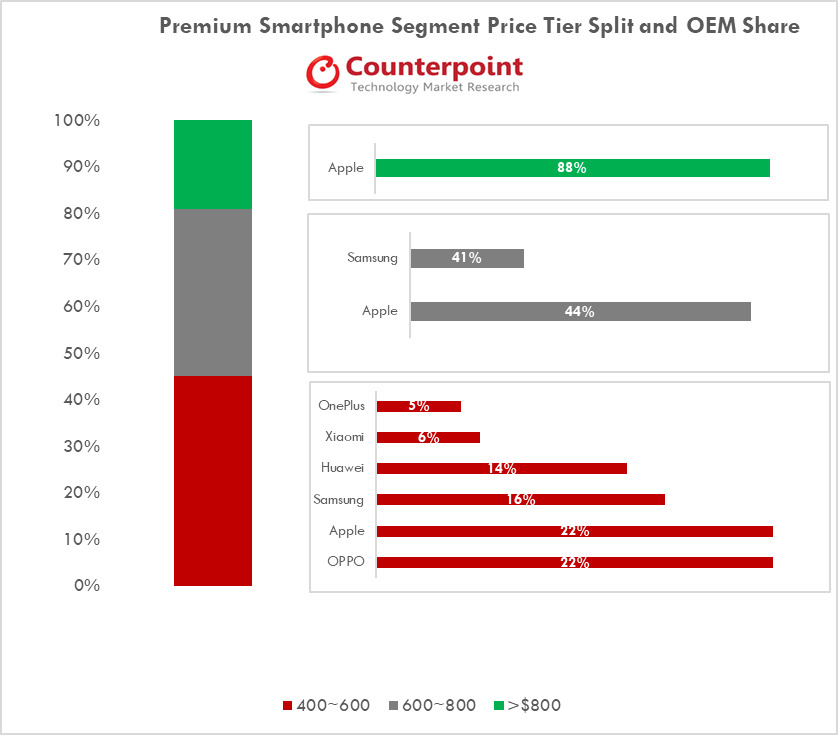







-m.jpg)






 Brian Patterson
Brian Patterson
 Charles Martin
Charles Martin


 Malcolm Owen
Malcolm Owen
 William Gallagher
William Gallagher
 Christine McKee
Christine McKee
 Marko Zivkovic
Marko Zivkovic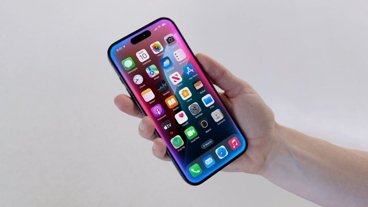

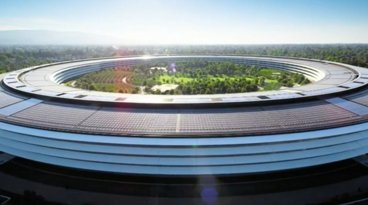







32 Comments
So it looks like the smartphone market is still a long way from becoming commoditized. Speaking of commoditization, to this day there still is a premium toaster oven market out there. You can pay a couple of hundred dollars for one with all the bells and whistles or you can pay $20 for the Walmart version and replace it every couple of years. Nothing wrong with that.
The more useful statistic would have been: what proportion of the sales of Apple (v. Android-makers such as Samsung) are above, say, an ASP of $700? A second useful statistic would have been what proportion of profits come from above-700 versus sub-700 phones? I am guessing there would be simply no comparison between Apple and the others.
In fact, I am impressed that Apple has a 44% share in sub-600 phones.
Apparently, that isn't enough for Apple as far as the critics and analysts are concerned. They still want Apple to sell a great number of flagship iPhones in all the BRIC nations. I really don't quite understand this because I don't think I ever see other companies with high-priced brands being expected to sell equal amounts of product with lower-priced brands. It's always being said how Apple is wrong not to go after higher global market share percentage. Apple seems to be doing well as it is but maybe I can't read the future as well as some of those financial experts. I always figure if Apple wanted to suddenly sell less expensive products, they easily could. However, I don't see the point of going after every price point in the market. That's just greed and it probably wouldn't do that much more for Apple's bottom line. If Apple is actually considered a premium (somewhat exclusive) brand, then what would be the point of allowing everyone to own an Apple product. That makes it a commodity product and that's not what Apple is aiming for. Why don't analysts understand such a simple fact? They can't be that stupid, can they?